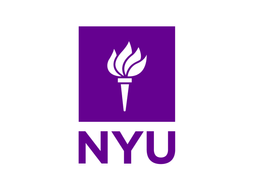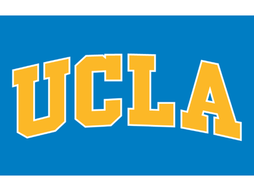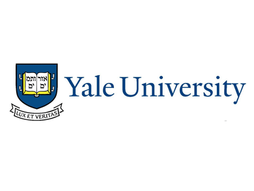Applying to the MET's Internships as a High Schooler? Here are 8 Tips to Help You Out
Participating in internships while still in high school is an admirable and strategic move, especially when they are hosted by prestigious institutions like the Metropolitan Museum of Art, also called The MET. These opportunities not only enhance your resume but also offer a rich, immersive experience that can significantly boost your college applications. Here’s how you can navigate the prestigious realm of The MET’s internships and make the most out of this golden opportunity.
What are MET Internships?
The MET internships are prestigious, paid opportunities offered by the Metropolitan Museum of Art for high school students. These programs provide hands-on experience in various museum departments, ranging from curatorial and conservation to marketing and education. Interns work closely with museum professionals, gaining valuable insights into museum operations, art handling, and exhibition planning. These internships are designed to enhance students' professional skills and deepen their appreciation for the arts, making them a significant boost to any college application.
Are MET Internships prestigious?
Yes, MET internships are highly prestigious. Being part of a world-renowned institution like the Metropolitan Museum of Art not only provides invaluable hands-on experience but also significantly enhances a student's resume. The rigorous selection process and the opportunity to work alongside leading professionals in the art world further underscore the esteem associated with these internships.
The acceptance rate is estimated to be 3-4%, with about 36 students being selected each year, according to this blog.
What is the structure and content of the MET Internships?
The Metropolitan Museum of Art offers high school students two primary internship opportunities: the Summer High School Internship Program and the School-Year High School Internship Program. Both programs are designed to provide students with valuable experience, professional skills, and networking opportunities within the museum setting.
Summer High School Internship Program The Summer High School Internship Program is a paid opportunity that connects students with art, museums, and creative professionals across various departments. Interns engage in a comprehensive experience, including one-on-one interactions and small cohort activities with museum professionals in fields such as editorial, marketing, social media, education, scientific research, and conservation. The program starts with an orientation and training session followed by departmental placements where interns work 10 to 20 hours per week from early July through early August. Each intern receives a stipend in accordance with New York State minimum wage laws.
School-Year High School Internship Program Similar to the summer program, this internship provides students with professional development and work experience while connecting them to art and museum careers. The program begins with an orientation and training session, followed by a departmental placement where interns commit to 2 to 4 hours per week from February through June. Interns participate in activities designed to enhance their understanding of museum operations and develop their professional skills in various fields. Interns in this program also receive a stipend based on New York State minimum wage laws.
What are the costs associated with the MET Internships?
There are no costs with the MET Internships – instead, they are paid opportunities, providing interns with a stipend, which helps offset any associated costs. While the program covers the intern's compensation, students may need to consider personal expenses such as transportation and meals. However, the financial support provided by the stipend makes these internships accessible and affordable for high school students.
What tasks are covered by interns at the MET?
Interns at the MET engage in a wide variety of tasks that provide a comprehensive understanding of museum operations. These tasks include assisting with curatorial research, cataloging art pieces, and helping to prepare and install exhibitions. Interns also participate in public programming and educational activities, contributing to workshops and tours that engage museum visitors.
Additionally, interns gain experience in administrative and behind-the-scenes roles, such as supporting marketing and social media efforts, conducting scientific research related to art conservation, and working with digital media projects. This hands-on involvement across multiple departments ensures that interns acquire a diverse skill set and a deep appreciation for the complexities of running a major cultural institution.
What does a typical day for an intern look like?
A typical day for an intern at the MET offers a blend of structured activities and hands-on experiences. The day often begins with a team meeting or orientation session where interns receive their assignments and goals for the day. Depending on their departmental placement, interns might spend the morning conducting research for upcoming exhibitions, cataloging new acquisitions, or assisting with the preparation and installation of art displays.
In the afternoon, interns might attend workshops or training sessions led by museum professionals, covering topics such as art conservation techniques, digital media, or public engagement strategies. They may also be involved in interactive projects, such as developing educational materials for museum tours or contributing to the museum's social media content. Throughout the day, interns have the opportunity to collaborate with staff and fellow interns, gaining insights into various career paths within the museum and arts sector, and networking with professionals in their field of interest.
How can I apply for the MET Internships?
Eligibility
For the Summer High School Internship Program, applicants must be rising juniors or seniors who either reside in or attend a high school or home school in New York, New Jersey, or Connecticut.
The School-Year High School Internship Program is open to students in grades 10 and 11 who live in or attend school in New York City. The MET encourages applications from students of diverse backgrounds, especially those from groups historically underrepresented in arts and museum careers.
Application Information
Prospective interns need to complete an online application form (School Year and Summer application forms linked here) , which typically includes providing personal information, academic transcripts, and letters of recommendation from teachers or mentors. Applicants are also required to submit a personal statement or essay explaining their interest in the internship, their career aspirations, and how the internship aligns with their goals. Highlighting any previous experience related to art, museums, or relevant skills can strengthen the application.
Timeline
For the Summer High School Internship Program, applications usually open in the winter, with deadlines in the early spring (for 2024, it was due March 8 at 6 PM). If you are selected as a finalist, you will be notified of interview logistics around a month later.
The School-Year High School Internship Program typically has applications opening in the fall and deadlines in late fall or early winter (for 2023, it was due October 27 at 6 PM). Notifications are sent out in January.
It’s crucial to check the MET’s official website for specific dates and deadlines each year to ensure timely submission of all application materials.
What are some tips I should know when applying?
Internships at the MET can be quite competitive, but luckily, we have identified some tips that will help your application stand out from the rest:
You should tailor your resume. Ensure your resume highlights experiences and skills relevant to the internship role you are applying for. Emphasize any art-related activities, volunteer work, or school projects that demonstrate your interest and dedication to the field. Including specific achievements and responsibilities in these areas can make your application stand out. You may also ask your guidance counselor or art teacher to look over your resume.
You should write a compelling personal statement. Your personal statement is a critical component of your application. Clearly articulate your passion for art and museums, and explain how the internship aligns with your career goals. Use this opportunity to showcase your unique perspective and experiences, making a strong case for why you are a perfect fit for the program. For example, if you have a personal story or anecdote that strongly represents your passion for art, write about it!
You should seek strong letters from recommenders you trust. Select recommenders who know you well and can speak to your qualifications and character. Teachers, mentors, or supervisors who can provide detailed and positive insights into your abilities and work ethic will strengthen your application. Be sure to give them ample time to write and submit their recommendations – asking them at least 2-3 weeks before the deadline is the minimum.
You should prepare for the interview. If your application progresses to the interview stage, prepare thoroughly. Research the MET’s current exhibitions, history, and mission to show your genuine interest and knowledge about the institution. Practice common interview questions and develop thoughtful questions to ask your interviewers about the internship. Request your teachers or mentors to sit you through a mock interview to hone in on your speaking skills and your answers.
You should highlight your unique abilities. Consider what makes you stand out from other applicants and emphasize these qualities in your application. Whether it's a unique cultural perspective, a particular skill set, or a notable project you’ve worked on, showcasing what makes you unique can make a significant impact. Don’t hold back when describing your passions and interests on your application and to your interviewer!
You should maintain a professional tone. Maintain a professional tone in all written and verbal communications with the MET staff. Proofread your application materials for any errors and ensure your emails are courteous and well-structured. First impressions matter, and professionalism can set you apart as a serious candidate. The MET is seeking interns that have strong communication skills and can be professional in the workplace.
You should leverage your school’s resources. Many high schools have resources to assist students with internship applications, such as guidance counselors, career centers, and writing labs. Utilize these resources to get feedback on your resume and personal statement. They can provide valuable insights and help you refine your application.
You should prepare and apply early. Submitting your application well before the deadline can demonstrate your enthusiasm and commitment. It also gives you time to address any unforeseen issues, such as technical difficulties or missing documents. Applying early shows that you are organized and serious about the opportunity. Don’t leave such an important application to be done at the last minute!
Our Thoughts
Applying for the MET's internships can significantly enhance your college application and provide invaluable experience in the art and museum field. These paid internships offer high school students hands-on opportunities across various departments, from curatorial work to public engagement. The application process is competitive, requiring a well-crafted resume, strong personal statement, and solid letters of recommendation. By following key tips such as tailoring your resume, preparing for interviews, and utilizing school resources, you can improve your chances of being selected. Overall, the MET internships offer a unique and enriching experience that can set the foundation for a successful career in the arts.
If you’re looking to gain research experience alongside your internship, consider applying to Horizon’s Research Seminars and Labs!
This is a selective virtual research program that lets you engage in advanced research and develop a research paper on a subject of your choosing. Horizon has worked with 1000+ high school students so far and offers 600+ research specializations for you to choose from.
You can find the application link here
One other option – Lumiere Research Scholar Program
If you are interested in doing university-level research in art or other subjects, which can become a topic to talk about in your college application, then you could also consider applying to the Lumiere Research Scholar Program, a selective online high school program for students founded with researchers at Harvard and Oxford. Last year, we had over 4000 students apply for 500 spots in the program! You can find the application form here.
Lydia is currently a junior at Harvard University, studying Molecular and Cellular Biology and Economics. In high school, she was the captain of her high school’s Academic Decathlon team and attended the Governor's School of Engineering and Technology. She aims to become a life sciences consultant after graduation.











